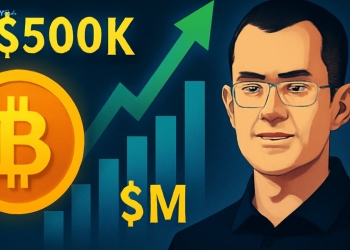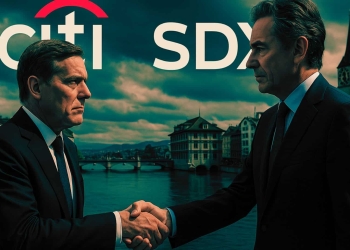The Russian government has officially scrapped plans to launch a state-run Russia Crypto Exchange, opting instead to regulate private platforms. The move comes amid growing global scrutiny of centralized digital asset infrastructures and renewed sanctions pressure.
Initially, Russia had intended to create a national cryptocurrency exchange limited to high-net-worth investors. The proposal gained traction in 2023 as part of broader efforts to build a parallel financial system resilient to Western restrictions. However, critics—especially from within the Ministry of Finance—warned that such a centralized platform could pose cybersecurity risks, stifle innovation, and invite regulatory complications.
From Centralization to Regulation
The shift away from a national Russian crypto Exchange was confirmed earlier this year, with officials stating that private sector exchanges will now operate under a new legal framework. Rather than consolidating control under one government-run platform, Russia aims to stimulate competition while maintaining oversight.
This pivot aligns with the Ministry of Finance’s preference for a market-driven ecosystem. “We believe multiple licensed platforms will allow for safer innovation and a healthier marketplace,” said a spokesperson from the ministry.
Experimental Regime for Wealthy Investors
As part of the new strategy, the Bank of Russia has proposed a controlled environment where “particularly qualified” investors can trade digital assets on licensed exchanges. The qualification bar is high: individuals must have over 100 million rubles (around $1.15 million) in assets or earn more than 50 million rubles ($575,000) annually.
While not a substitute for the now-defunct Russia Crypto Exchange concept, this move reflects Moscow’s cautious approach. The experimental regime will last three years and is expected to offer insights into market behavior, transparency, and potential risks.
Why the Russia Crypto Exchange Plan Was Scrapped
Security concerns and the desire to avoid a monopolized market led to the downfall of the Russia Crypto Exchange initiative. Experts noted that any centralized platform would have been an easy target for cyberattacks and a potential lightning rod for international sanctions.
“Centralized exchanges are attractive to bad actors, and in the current geopolitical climate, that’s a risk Russia can’t afford,” said Andrei Tikhonov, a fintech analyst based in Moscow.
What This Means for Crypto in Russia
The demise of the national Russia Crypto Exchange plan could ultimately benefit the digital asset ecosystem. By opening the door to licensed private operators, Russia is taking steps to mature its crypto market while still exerting regulatory control.
This new direction could also attract foreign interest, especially from crypto firms that view Russia as a growing market. While retail crypto payments remain banned, trading among qualified participants is gaining institutional legitimacy.
Industry Response
Crypto firms inside Russia welcomed the pivot. “We’re relieved,” said Natalia Petrova, CEO of a Moscow-based digital asset platform. “The national Russia Crypto Exchange would have stifled smaller firms. Now, we have a chance to grow and compete.”
Industry observers believe that this more decentralized approach could help Russia strike a balance between innovation and regulation, setting a precedent for other countries considering similar models.
Final Thoughts
The collapse of the Russia Crypto Exchange plan marks a turning point in the country’s digital asset policy. Instead of a single state-run platform, Russia is embracing a more pluralistic and potentially resilient ecosystem. For high-net-worth investors and private exchanges, the regulatory winds may finally be shifting in their favor.
Follow us on Twitter and LinkedIn, and join our Telegram channel for more news.
FAQs
Q: Why did Russia abandon the national crypto exchange plan?
A: Concerns over cybersecurity, sanctions, and market monopolization led to the decision to cancel the Russia Crypto Exchange plan.
Q: Who can now legally invest in crypto in Russia?
A: Only qualified investors—those with over 100 million rubles in assets or high annual income—can participate under the new rules.
Q: Will retail investors gain access in the future?
A: For now, crypto payments and trading remain restricted for retail users in Russia.
Q: Is Russia still interested in digital assets?
A: Yes, but it’s focusing on regulated private platforms instead of a state-controlled Russia Crypto Exchange.
Q: How long will the experimental regime last?
A: Three years, during which regulators will monitor risks and performance.
Glossary
-
Russia Crypto Exchange: The now-cancelled plan for a government-run digital asset trading platform in Russia.
-
Qualified Investors: High-net-worth individuals approved to participate in experimental crypto trading environments.
-
Sanctions: Economic restrictions often placed by Western nations in response to geopolitical conflicts.
-
Cybersecurity Risks: Potential threats that could compromise centralized platforms and national systems.






























































































![BitTorrent [New]](https://s2.coinmarketcap.com/static/img/coins/64x64/16086.png)
















